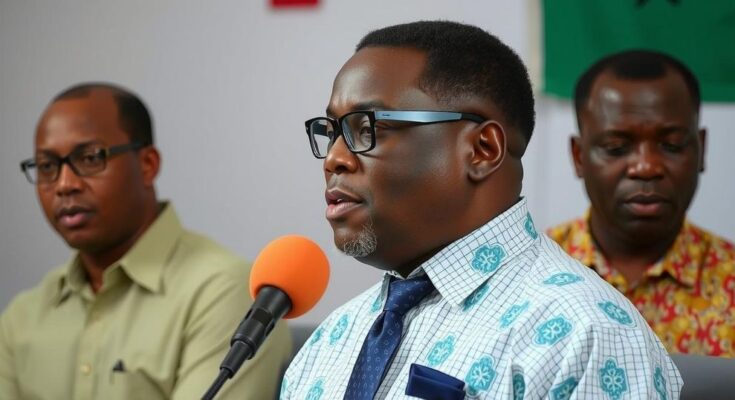Ghanaians are preparing for an election that features former president John Dramani Mahama against current vice president Mahamudu Bawumia. Key issues include a struggling economy, high inflation, and environmental degradation. With the youth voting bloc becoming increasingly significant, the outcome will hinge on their discontent with government performance. Polling will occur on Saturday, and results will be reported shortly after voting concludes.
In Ghana, citizens are set to cast their votes in an election that pits the ruling vice president against a former president looking to make a political comeback. The current economic turmoil has led to discontent among voters who are eager for a leader that can effectively address the challenges facing the nation. Notably, the competition arises from two established political parties—the New Patriotic Party (N.P.P.) and the National Democratic Congress (N.D.C.).
Nana Akufo-Addo, the 80-year-old current president, is stepping down and endorsing his vice president, Mahamudu Bawumia, aged 61, to take his place. His main challenger is the 66-year-old former president, John Dramani Mahama, who was ousted eight years prior but believes he can return to restore economic stability. The candidates are representative of a politically fragmented electorate and face significant challenges ahead.
Ghana’s economy has been under severe strain, with inflation surging, increased debt levels, and a notable increase in unemployment. Many Ghanaians find themselves grappling with rising living costs, as projections indicate that food insecurity is set to escalate. Analysts caution that the distress caused by years of mismanagement and the environmental consequences of illegal mining could lead to further unrest, especially among the youth, who are particularly affected by the situation.
The upcoming election in Ghana highlights the deep-rooted economic struggles currently faced by the country. Ghana, recognized as the largest gold producer in Africa, has been experiencing the worst economic challenges in a generation, characterized by rampant inflation, an overwhelming national debt, and extensive youth protests against illegal mining practices. The nation’s leadership has shifted between two principal parties—the N.P.P. and the N.D.C.—each with its own record of governance since the re-establishment of multiparty politics in 1992. This election uncovers a pivotal moment as voters deliberate over the viability of former leaders against the backdrop of political fatigue and economic disillusionment.
As voters prepare to head to the polls in Ghana, the decision they make will reflect their response to the extensive economic crisis and their desire for progress. The election pits two seasoned politicians against each other in a contest that is heavily influenced by the younger generation’s expectations and frustrations. Both major candidates are firmly aware of the pressing need for economic reform, and the outcome of this election will undoubtedly shape Ghana’s trajectory in the coming years.
Original Source: www.nytimes.com




